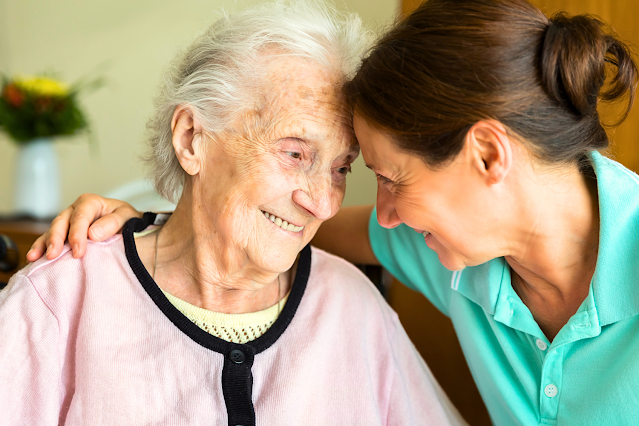Caring for our elderly population is more than a duty - it is a privilege. With the growing ageing population in the UK, the demand for skilled and compassionate geriatric nurses is at an all-time high. Whether you're a newly qualified nurse, a healthcare assistant stepping into a nursing role, or an overseas nurse preparing for NHS practice, this guide will provide you with the essential knowledge, skills, and confidence to begin your journey in geriatric care nursing.
Objective: This blog aims to educate, inspire, and support beginner nurses while aligning with NHS best practices and guidelines for high-quality elderly care.
What is Geriatric Care Nursing?
Nurses working in geriatric settings-such as nursing homes, care homes, community services, or hospital geriatric wards-must be skilled in:
-
Person-centred care
-
Communication and empathy
-
Medication management
-
End-of-life care
-
Working with families and multidisciplinary teams
Why Geriatric Nursing is Important in the NHS
The NHS promotes:
-
Preventative care to reduce hospital admissions
-
Integrated care systems to support older adults in the community
-
Respectful, dignified care aligned with the NHS Constitution for England
Key Concepts Every Beginner Must Know
1. Person-Centred Approach
-
Address your patients by their preferred names
-
Offer choices in care routines (e.g., timing of baths or meals)
-
Consider cultural and spiritual values
2. Effective Communication
-
Simple, respectful language
-
Visual aids or gestures if needed
-
Active listening techniques
Tip: Always speak clearly and slowly, and give time for them to respond.
3. Common Conditions in Older Adults and Their Nursing Focus
Dementia / Alzheimer’s Disease
-
Provide memory support through reminders, memory boards, or signage.
-
Maintain consistent routines to reduce confusion.
-
Ensure safety measures like bed rails, call bells, and monitoring wandering behavior.
Arthritis
-
Focus on pain management using prescribed analgesics and non-pharmacological techniques.
-
Encourage use of mobility aids (like walkers or canes).
-
Recommend assistive devices to promote independence with daily tasks.
Incontinence
-
Implement regular toileting schedules to prevent accidents.
-
Use continence products with dignity and comfort in mind.
-
Maintain skin integrity by preventing moisture-associated skin damage.
Falls and Frailty
-
Perform regular falls risk assessments (e.g., FRAT - Falls Risk Assessment Tool).
-
Keep the environment safe - clear walkways, good lighting, and non-slip footwear.
-
Encourage gentle physiotherapy or exercise if appropriate.
Malnutrition
-
Conduct nutritional screening using tools like the MUST (Malnutrition Universal Screening Tool).
-
Monitor daily intake using food and fluid charts.
-
Collaborate with a dietitian for tailored nutrition plans.
4. Safe Medication Administration
-
Check for drug interactions
-
Monitor for side effects
-
Encourage adherence using dosette boxes if appropriate
Tools: Refer to BNF for Older People and STOPP/START criteria for medication review.
5. Safeguarding and Dignity
-
Respect privacy
-
Promote independence
-
Challenge poor practice
Be vigilant for signs of abuse or neglect - physical, emotional, financial, or institutional - and follow your organisation’s Adult Safeguarding Policy.
Core Skills for Geriatric Nurses
-
Manual Handling: Proper technique to avoid injury for both patient and nurse.
-
Pressure Area Care: Use of Waterlow Score to assess and prevent pressure ulcers.
-
Continence Management: Use of appropriate pads, toileting schedules, and bladder diaries.
-
Nutrition Monitoring: Recording fluid and food intake charts and escalating concerns early.
Working with Families & MDT
Also, collaborate with:
-
GPs
-
Physiotherapists
-
Occupational Therapists
-
Social Workers
-
Dietitians
Follow the NHS Integrated Care Systems (ICS) model for multidisciplinary collaboration.
Realistic Challenges and Tips
Common Challenges:
-
Time pressures and staff shortages
-
Emotional toll of end-of-life care
-
Balancing autonomy vs. safety
Practical Tips:
- Always document clearly (according to NHS Digital and local policy)
- Build rapport with patients - it builds trust
- Take breaks and seek support to prevent burnout
- Stay updated with eLearning for Health (e-LfH) modules
Final Thoughts
Starting your journey in geriatric nursing is both a challenge and a calling. You are not just caring for medical conditions - you are caring for a life lived, a story told, and a person who deserves compassion, dignity, and respect.
Let us all commit to raising the standard of care for our elderly - not just meeting expectations, but exceeding them.
“To care for those who once cared for us is one of the highest honours.” - Tia Walker
Useful References and Resources
NICE Guidelines
NHS England - Ageing Well Strategy
RCN (Royal College of Nursing) Older People’s Care Resources
NMC Code of Conduct (2018)
e-Learning for Healthcare - NHS Online Modules










